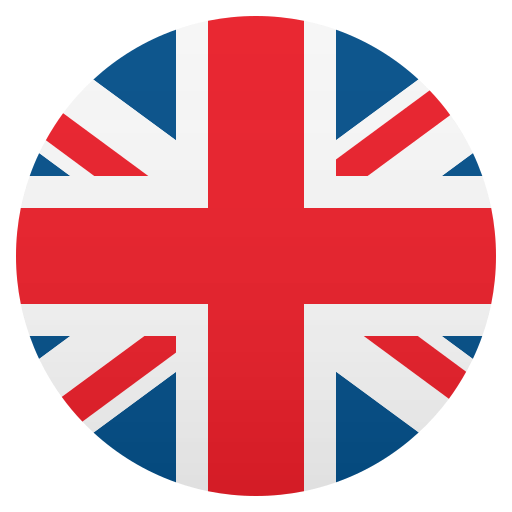







Submitted by Nigel Whitfield, Director, BLUF Ltd, 16 November 2020
BLUF turns 23 this week. We’re doing so in a year that has been unlike any other, for a number of reasons. The pandemic is one, obviously, but besides that and the US election, one of the things that 2020 will surely be remembered for is protests about racial justice and equality, all around the world.
Some months ago, we stated unequivocally that Black Live Matter, but as an organisation that’s fairly well known across the leather world, we have an obligation to do more than that, and to try and make sure we have polices and processes that ensure the club is as welcoming as possible, to as many as possible.
This is not something that happens overnight; some of what we want to do may need changes to processes and software, some may take time to get a sufficient number of people together to make them happen, and so on.
Consider this blog, then, a starting point. And a commitment that by the time of our 25th anniversary in November 2022, we will have implemented a significant number of changes.
Diversity means many different things to different people. Here, in this context, when I talk of diversity, I mean that I want BLUF to be welcoming too - and to be seen to be welcoming to - as broad a selection of our current and potential membership as possible.
That means talking about more than just race. It means considering whether we are meeting the needs of people across different age groups, as well as disability and language, and quite likely other factors too.
For instance, these are some of the questions that I think we need to be asking:
There will be countless other questions, I’m sure - and if you have thoughts, please let me know, in private or in the comments
In the past, the answer has been simple. As webmaster / Director, I decide what I think needs to be done, and do it. And we have already made some small changes - this summer, for instance we added the new “Why join” page, which showcases a more diverse range of members than we’ve had visible on the site before, including trans members, members with disabilities, and members from a wider range of ethnic backgrounds.
We also have a policy that event organisers should try to feature a diverse range of people in the images they use to promote events.
But what we don’t yet have is a proper feedback or monitoring mechanism. So for all that I might make suggestions or promises, there is no clear, open way of determining if we meet, exceed, or fall far short of whatever aims or targets are set. And, ultimately, I believe that without that, everything else is potentially just lip service.
How to manage this is a question to which I’ve given some thought - this blog is not the first stage in the process; I’ve talked with other people over recent months for advice and feedback. It also won’t be the last. BLUF has never been constituted as a democratic club, and at the moment, I think that sort of change would be a massive undertaking that, while desirable in the longer term, may distract from achieving our principle goals. But I’m equally sure something needs to change in this area.
The first change that I’m announcing is the intention to form a Diversity and Representation Panel, or DARP. This will be a group of people who are tasked with helping to decide what goals we should be meeting, and then independently reporting on BLUF’s progress towards those goals.
My idea - and feedback is very much welcomed here - is that there will be around five members, and that a minimum of two should be from non-white communities within the BLUF membership. There should also be at least one person whose primary language is not English. Input from people representing disabilities, or differing age groups, is strongly encouraged too - and of course a single member may well represent more than one group's perspective.
Initially, the first DARP is likely to be appointed by invitation; longer term I hope we may be able to move to some form of election.
In the first instance, the initial task of the DARP will be to work out what areas need to be monitored; I’ve mentioned some of those above, and I’m sure that there may be others that I have missed. In conjunction with the members of the DARP, we’ll identify areas that need to be monitored, and in particular those in which improvements need to be made.
I also hope we can create a mechanism whereby individual members can raise issues with the DARP too, if they feel that, for instance, matters relating to diversity have not been handled appropriately by myself, or by event organisers.
And, as far as possible, I will commit to giving priority in my work for BLUF to those areas highlighted by the DARP, whether that’s in terms of process, volunteer recruitment and management, or tasks like coding changes to the site and apps.
At least once a year - how often is still up for discussion - the DARP members will produce a report, which BLUF will commit to publishing unedited (save for any redactions required for member privacy), allowing everyone to see how the club is performing. I believe that this transparency is the best way to encourage change for the better.
That may well mean publicly publishing material that is critical of me, or of deficiencies in BLUF’s systems. I hope I’m big enough to weather that. It may also mean publishing material that is critical of some of our volunteers, but I hope that they too will take this in a constructive manner.
Ultimately, establishing a Diversity And Representation Panel is not about calling out mistakes, but about trying to ensure that we have an idea of the areas in which we can do better, how we can do better, and of measuring our progress towards those goals.
I hope that around the end of this year, we will have found the members for our first panel. By Easter, I hope we’ll be able to publish some clear aims for the rest of 2021, and that the DARP will report for the first time - warts and all - on how well we’ve progressed towards those aims, by the end of the year.
There will, I’m sure, be some who will ask “Why do we need this?” and to them I say this is not about changing the character or BLUF. But it is about growth.
I want the club to be welcoming to prospective new members, wherever in the world they come from. I want them to be able to see people like themselves in our publicity. To be able to read information about some of our biggest events in more than just one language. To know that BLUF is a place where you’re accepted for your character and your love of leather uniform, not judged by wealth or age, skin colour or whether your speak English.
As a club, we have members in over 55 countries around the world. We have members from their early 20s to their 70s. We are already diverse. It is a strength, and one we should build upon.
Nigel.